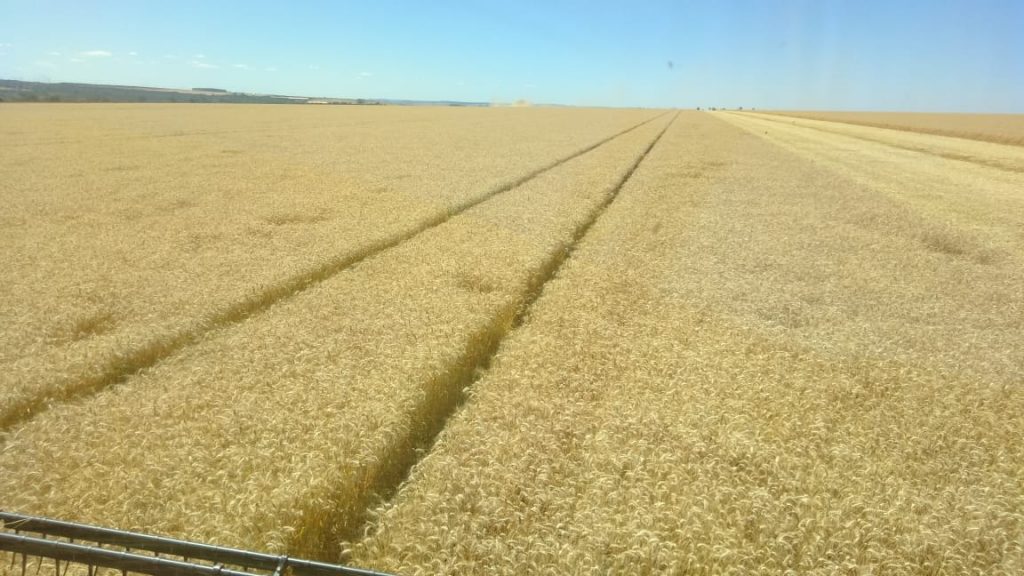São Paulo – Wheat has been harvested in Ceará, a dry state with scant water resources in Northeast Brazil, for the first time in history. The farming project was developed by the Brazilian Agricultural Research Corporation (Embrapa) in partnership with milling company Santa Lúcia. The first stage took place in a semiarid area, with a fast planting-to-harvest cycle and high yields.
Although the actual planting only started recently, the tropical cultivars (pictured above) that enabled the project started being developed 15 years ago. These varieties do not require much water, so they are well-suited to Ceará as well as the Arab countries across the Middle East and North Africa. “We have the genetic material for four varieties of tropical wheat. We picked the two that performed best, which were BRS404 and BR264,” Osvaldo Vieira, head of Embrapa’s wheat division Embrapa Trigo, told ANBA over the phone.
Early experiments were conducted by Embrapa Trigo, Embrapa Agroindústria Tropical and the Federal Institute of Ceará to ascertain whether the wheat could be grown in the local soil and climate. The result was a 75-day cycle, which is faster than in Brazil’s major producing regions, where the time from planting to harvest ranges from 140 to 180 days. “It was quick, because there’s good light, high temperatures and sunlight,” Vieira explained.
The studies were conducted in one low-altitude and one high-altitude municipality in Ceará. The harvest was 8.5 tons of wheat in a 1.6-hectare area, which translates to 5.3 tons per hectare. This proved that wheat could be grown in hotter climates. The fact that the plant has low water requirements was helpful.
Northeast Brazil’s industry imports virtually all of its wheat needs. “Ceará is a peculiar state. It has a strong milling industry that’s dependent on imports. If we managed to minimize imports, that would be good for the industry, but our focus is not only self-sufficiency. We also intend to enable exports. That is doable, judging from what we have seen so far,” Vieira said.
According to Brazil’s Ministry of Agriculture, Livestock and Supply, Embrapa is doing research in Alagoas, with plans in place to branch out into Pernambuco, Piauí and Maranhão. The next steps will be getting more in-depth data and looking into issues such as zoning.
When questioned about getting the new adapted wheat technology to other countries, including Arab ones, the head of Embrapa Trigo explains that that is a possibility going forward. “Challenges move us. Why not develop cultivars for other locations? Embrapa is always working with this idea of transferring technology. Embrapa recently entered into an agreement with the United Arab Emirates. It all begins with doing research with a specific country in mind and figuring out how things work in practice.”
Translated by Gabriel Pomerancblum




